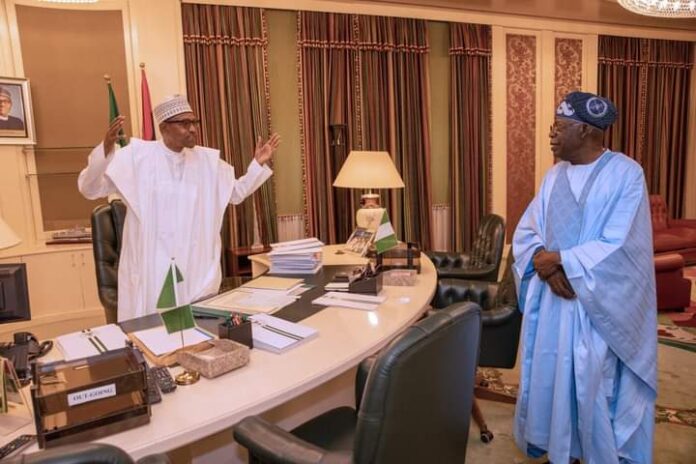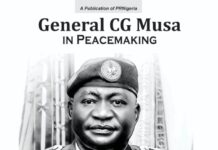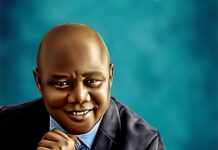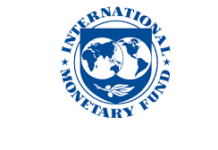Waiting For The Next President
By Monday P. Ekpe
_The upcoming inauguration demands a deep sense of responsibility from all stakeholders, writes Monday Philips Ekpe_
In a matter of hours, President Muhammadu Buhari, the second Nigerian leader to be in the saddle twice, will vacate the Presidential Villa in Abuja.
Senator Bola Ahmed Tinubu, arguably one of Nigeria’s most intriguing and influential political actors of this era, will collect the baton and step into the palatial, prestigious estate. And the country will continue on its unbroken but bumpy democratic journey seamlessly.
Hopefully, May 29, 2023 will be the beginning of the 25th year into the long walk away from the shadows of military adventurers in government.
Two of the soldiers at the helm of affairs -ex-President Olusegun Obasanjo and Buhari-returned to their former positions as civilians and successfully finished their two-term tenures.
But, perhaps not coincidentally, the ‘pure’ civilian presidents in the current republic -the late Umaru Musa Yar’adua and Goodluck Jonathan -were not blessed with two terms. Those are subjects of enquiry for another day.
Any historical account that doesn’t render these simple facts for the benefit of future generations can’tseriously lay claims to true scholarship and documentation.
Compared with all his four predecessors in the present political dispensation, the president-in-waiting most probably has had longer involvement with partisan politics. From the early 1990s, he has participated widely and consistently in it both at the state and federal levels.
People close to him think he always had his eyes on the top job, something eventually handed to him via the victory pronouncement by the National Chairman of the Independent National Electoral Commission (INEC), Prof Mahmood Yakubu in the early hours of March 1, this year. Tinubu is, therefore, a remarkable man.
I also support his rivals, particularly Wazirin Atiku Abubakar of the Peoples’ Democratic Party (PDP) and Mr. Peter Obi of the Labour Party (LP), who are at the election tribunal challenging the validity of that result and the processes that led to it.
But we shouldn’t be in doubt about the credibility of the ceremony being planned for Eagle Square in Abuja next Monday. The constitution is on the side of the declared winner. So are tradition and precedence.
For the sake of order and peace – virtues needed by every right-thinking member of society-let’s all come to terms with this basic knowledge. The earlier we do so, the better.
Last week’s congratulatory phone call by the United States’ Secretary of State, Anthony Blinken, to Senator Tinubu angered Abubakar and Obi, expressed in misplaced protests. The act by the American top diplomat was only a display of diplomatic finesse.
Scores of official representatives of governments around the world are set to grace the inauguration, not necessarily because they’re convinced of the integrity of the presidential poll but, in line with best global practices.
Relationships at governmental levels are between and about nations, not individuals. The election umpire has given its verdict and the aggrieved parties have since taken the judicial route, thankfully.
What stops Nigeria’s friends and well-wishers from felicitating with her during a crucial transfer of power. Nothing! If our eminent jurists reverse INEC’s decision after the swearing-in, I can bet that the same crowd will gather again to cheer the new victor. That’s the way of international politics and diplomacy.
For now, everyone needs to get ready to, at least, accommodate these current realities that have at the centre, Tinubu’s right to step onto the podium to assume the duty of leading Nigeria in these fractured times.
However, those points, bare and cogent as they are, are not all there is to the upcoming installation.
Read Also:
The contestations, ill-will, angst and bad blood mustn’t just be wished away. One can actually argue that these negative energies have either been suppressed or have become aggravated mainly as a result of the lack of will or inability of relevant entities to address them adequately and promptly.
In attempting to forge ahead as a people, something agitates me a times.We tend to paint dubious pictures, sometimes,while assessing critical situations.
I recall the period that followed the demise of the late General Sani Abacha. Some persons went to town, rejoicing that they had fought the dictator to a standstill. For me, that was plain exaggeration.
True, individuals and groups confronted the principality that threatened to suffocate Nigerians from various angles. The National Democratic Coalition (NADECO) wrote its name in gold as it took on Abacha through orchestrated campaigns locally and, even more potently, outside the country.
Many civil society organisations from within went into the trenches. Some people paid the ultimate price. Concerted efforts were made to get the junta out of power and restore democracy.
Painfully, Nigeria did achieve a pariah status among the comity of nations because of the pressure from our brave freedom fighters to ostracise the government. But in all of that, no one brought the loathed administration to its knees.
Instead, when Abacha rolled out his own return to civilian rule programme, the political parties, made up of adult Nigerians, ran over themselves to present the hated man as their consensus candidate. If death had not taken him away, Abacha would have succeeded in transforming into a ‘democratic’ president.
It was all sham, quite frankly, and indeed one of the lowest points in our history, but it can’t be wiped from our records. Curiously, a similar narrative from the school of hyperbole is being cooked.
Whenever I hear that Tinubu won the contest ‘fair and square’, I wonder. I’ve found myself explaining at different times that I don’t envy Abubakar and Obi in their quest to disprove INEC’s conclusion and make the judges look their way instead.
Even if they convince the tribunal and courts that the one fondly called ‘Jagaban’ by his followers didn’t win after all, persuading them that they deserve the certificate of return would be uphill.
The unprecedented closeness in the figures released by the commission and the mysterious malfunctioning of the IReV heighten the prospects for errors.
So, even if Tinubu’s supporters run around with tales of a clear electoral triumph, the former Lagos State governor should keep his head above the fray and refuse to be misled.
It would be good for him to emulate Yar’adua who promptly acknowledged the flaws in the poll that made him president in 2007. That could even earn him some goodwill among the bitter portion of the electorate. Who knows?
In two weeks, not fewer than three text messages have been circulated by the Presidential Transition Council (PTC). One, “Nigeria is our home and together we can build a better future for ourselves and our children. Let’s work together for the success of the incoming administration.
Nigeria: Better together!” Two, “United we stand, divided we fall. Let’s put our differences aside and work together to support the new administration towards a secured future for our nation.
Nigeria: Better together!” And three: “As Nigerians, we share a common bond. Let’s come together and support the new administration for the progress and development of our beloved country. Nigeria: Better together!”
Well-manicured and concise rhetoric, no doubt.
I wonder how beautiful it would have been if the same tone was adopted by politicians and their handlers in the run-up to the February and March elections, if gentle, refined persuasion had taken the place of the rancour, half-truths, falsehood and outright filth that characterised much of the public discourse then.
In preparing for the handover party, the PTC appears to realise that the somewhat subdued atmosphere in the country requires maturity, humility and restraint from the incoming leadership.
Tinubu and his crew can’t afford to throw caution away in the face of many wounded expectations. Nigeria craves for a steady guidance out of its present dilemma.
Ekpe, PhD, is a member of THISDAY Editorial Board.
















